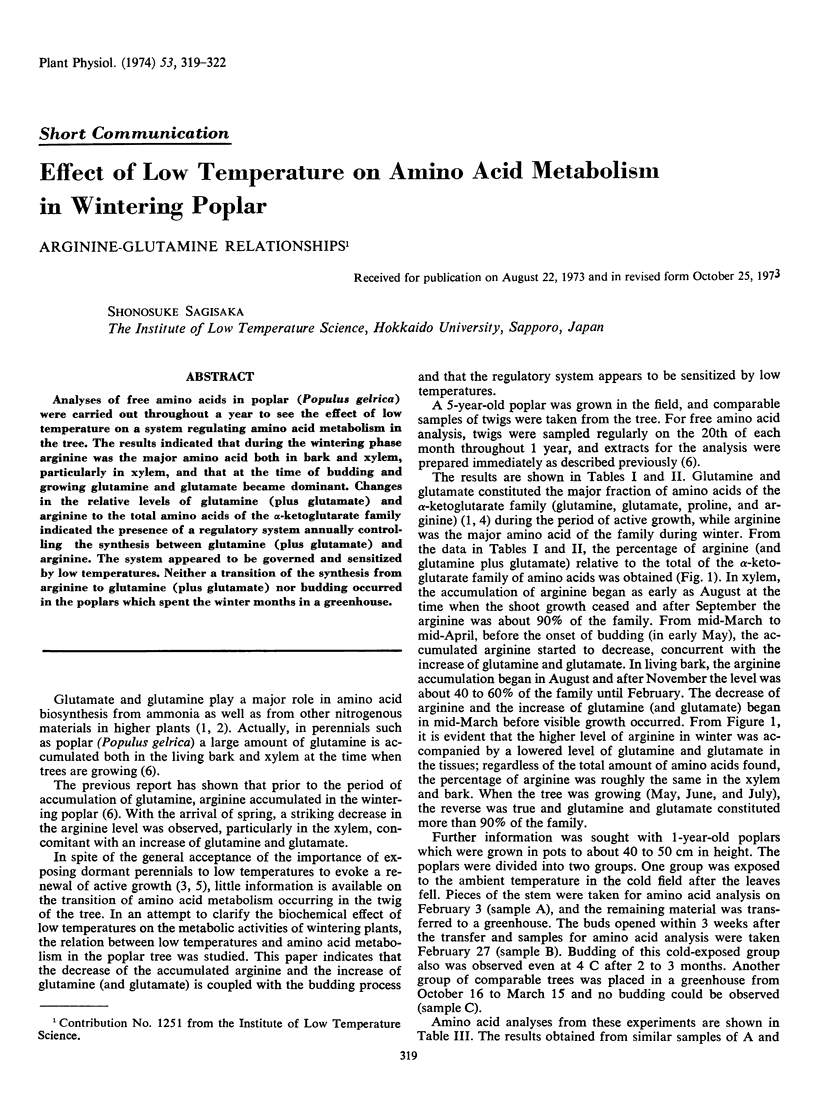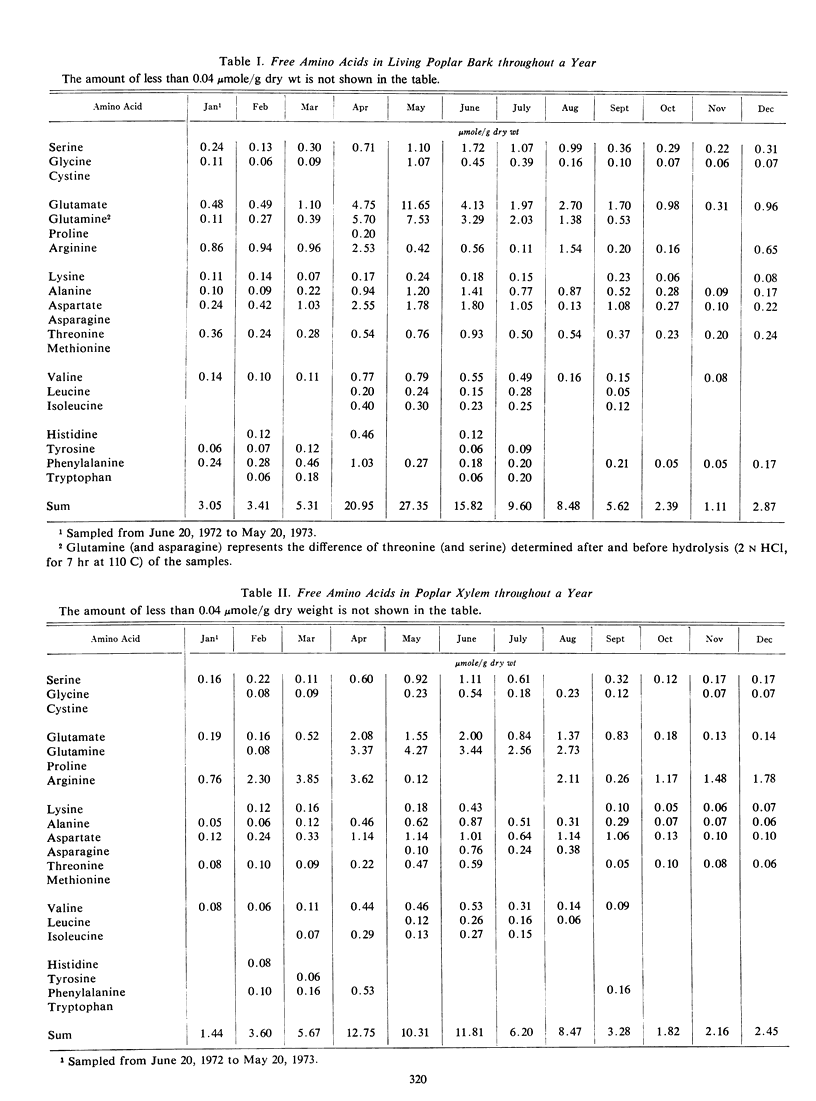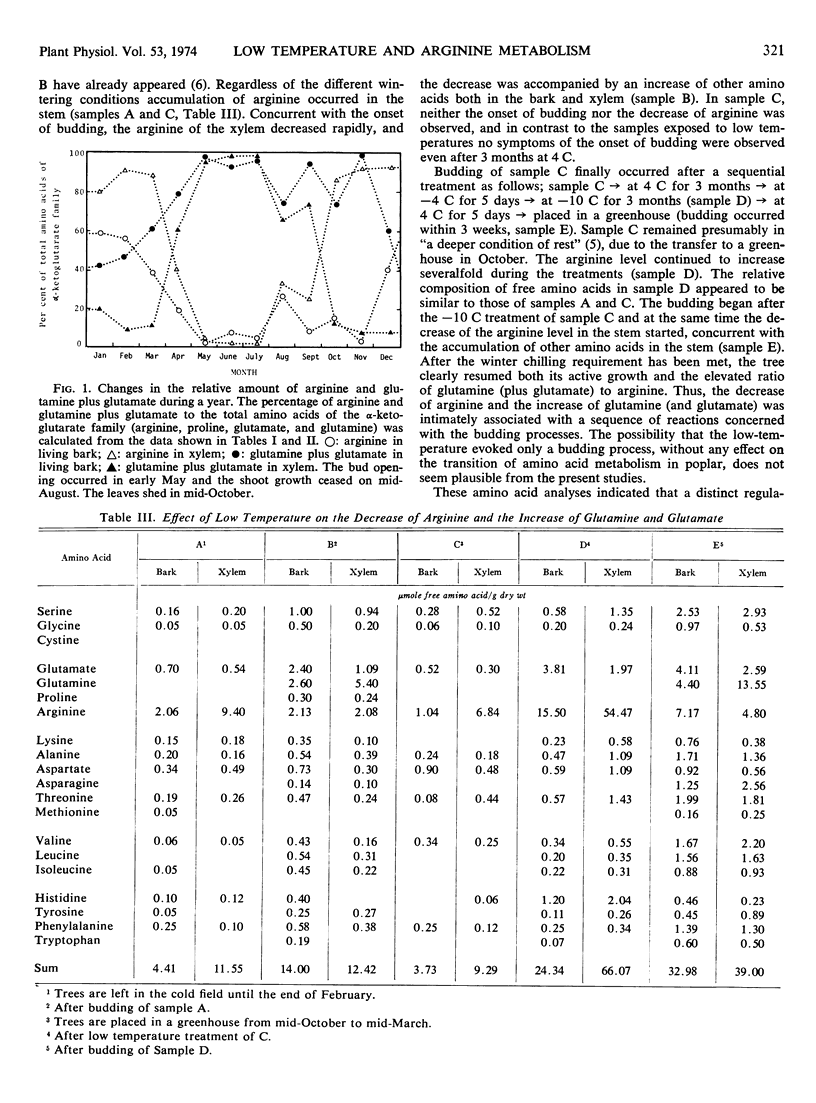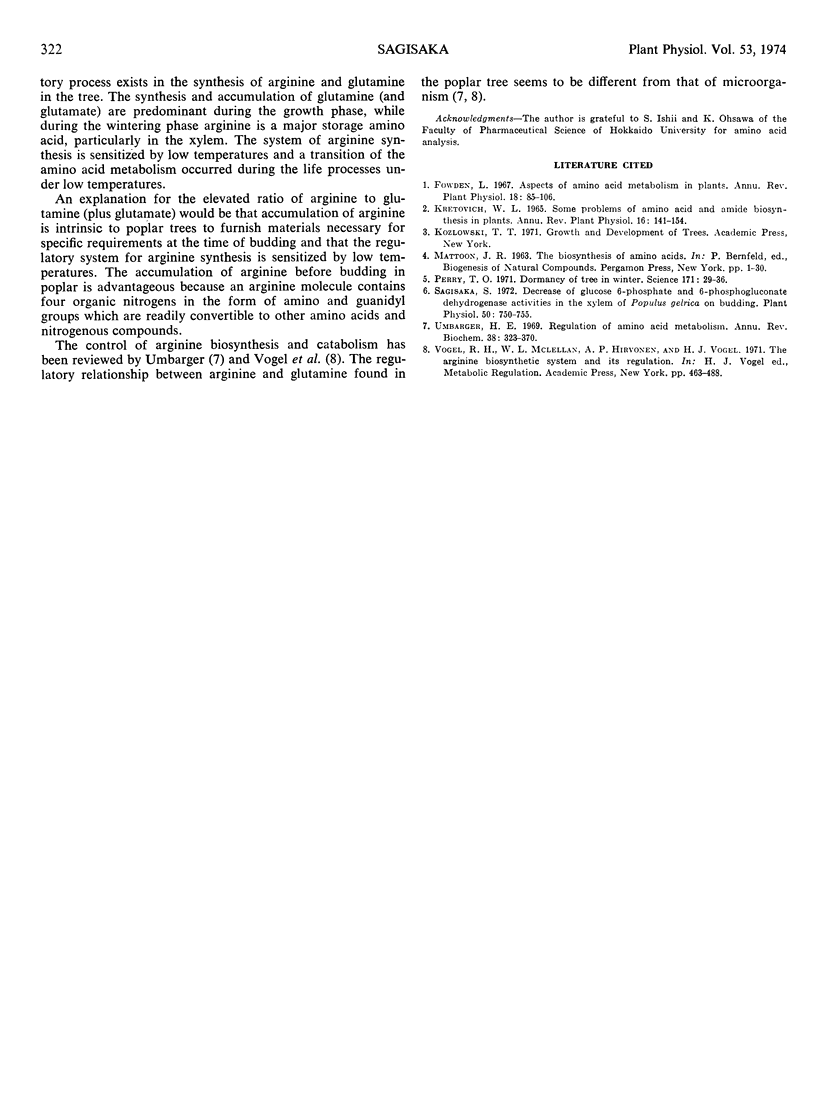Abstract
Analyses of free amino acids in poplar (Populus gelrica) were carried out throughout a year to see the effect of low temperature on a system regulating amino acid metabolism in the tree. The results indicated that during the wintering phase arginine was the major amino acid both in bark and xylem, particularly in xylem, and that at the time of budding and growing glutamine and glutamate became dominant. Changes in the relative levels of glutamine (plus glutamate) and arginine to the total amino acids of the α-ketoglutarate family indicated the presence of a regulatory system annually controlling the synthesis between glutamine (plus glutamate) and arginine. The system appeared to be governed and sensitized by low temperatures. Neither a transition of the synthesis from arginine to glutamine (plus glutamate) nor budding occurred in the poplars which spent the winter months in a greenhouse.
Full text
PDF



Selected References
These references are in PubMed. This may not be the complete list of references from this article.
- Perry T. O. Dormancy of trees in winter. Science. 1971 Jan 8;171(3966):29–36. doi: 10.1126/science.171.3966.29. [DOI] [PubMed] [Google Scholar]
- Sagisaka S. Decrease of Glucose 6-Phosphate and 6-Phosphogluconate Dehydrogenase Activities in the Xylem of Populus gelrica on Budding. Plant Physiol. 1972 Dec;50(6):750–755. doi: 10.1104/pp.50.6.750. [DOI] [PMC free article] [PubMed] [Google Scholar]
- Umbarger H. E. Regulation of amino acid metabolism. Annu Rev Biochem. 1969;38:323–370. doi: 10.1146/annurev.bi.38.070169.001543. [DOI] [PubMed] [Google Scholar]


